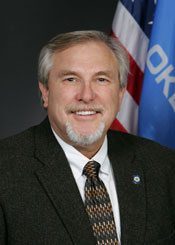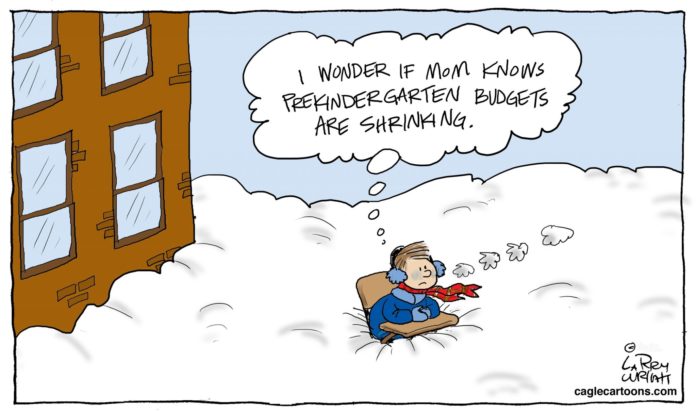BY DAVID PERRYMAN
 In the 1960s corporate chain stores displaced Main Street merchants and altered the way that Americans shopped. They promised lower prices, but sometimes lacked quality merchandise or service.
In the 1960s corporate chain stores displaced Main Street merchants and altered the way that Americans shopped. They promised lower prices, but sometimes lacked quality merchandise or service.
The “bargain bin” in the basement of a multi-story department store was no longer the place where merchants sent discontinued or obsolete merchandise for quick sale.
The new marketing model involved a loud speaker and “Attention shoppers, we have a Blue Light Special on Aisle 9.”
Today, opponents from every direction are undermining public education, trying to make it fail and treating it as if it needs to be placed in the bargain bin.
“Voucher” and “Education Savings Account” proponents are salivating to divert public education dollars to private and religious schools. Charter school proponents were not satisfied with just raiding public school funds in Oklahoma City and Tulsa. Last year they controlled enough legislators to get them to pass SB 782 by Sen. Clark Jolley, R-Edmond, and Rep. Lee Denney, R-Cushing, to let corporate charter schools set up anywhere in the state, even over the objection of the local citizens.
Those same groups appear to have enough votes to continue their assault on rural schools.
Sen. Greg Treat, R-Oklahoma City, has filed SB 1324 that will cut funding for Oklahoma’s Pre-K early childhood education programs.
Senate President Pro Tem Brian Bingman, R-Sapulpa, has filed SB 1382 to eliminate all of the state’s dependent or elementary school districts by July 2017.
Sen. John Ford, R-Bartlesville, has filed SB 1384 to consolidate all 297 school districts having enrollment of less than 500 students within the next four years and eliminating the right of local citizens to vote on the consolidation.
These are three bills that Oklahoma does not need.
Oklahoma’s Early Education programs are just about the only education thing that the legislature has done right in the last 10 years. Oklahoma’s Pre-K enrollment and curriculum are the envy of the nation. SB 1324 will cripple the state’s ability to get Pre-K children started off on the right foot.
SBs 1382 and 1384 pander to a misconception that Oklahoma’s dependent and independent rural schools are inefficient and wasteful. Those who trumpet rural school consolidation have no research to back up their claim and they are dead wrong.
State Department of Education records show that most smaller schools spend a lot less per pupil than their urban counterparts. For instance, Oklahoma City and Tulsa Public Schools spend nearly identical amounts per pupil educating their students.
However, Hobart Public Schools spend $4,913 less per pupil than Tulsa and Pioneer School, a small dependent district located in my legislative district, spends $4,648 less per pupil than does Tulsa.
Similar savings are evident all across the rural Oklahoma. For instance, the average per pupil expenditure of all school districts that are located wholly or partially in my rural legislative district is $2,467 less per pupil than Tulsa spends and $2,307 less than Oklahoma City spends.
So, there really are Blue Light Specials in Oklahoma’s rural schools and it is not because they are discontinued or obsolete. It is because that, despite being undermined and underfunded, they are delivering a real bargain to Oklahoma. Rural schools provide quality education and turn out quality graduates.
The next time someone tells you that consolidation is the answer, remind them that if Oklahoma City and Tulsa schools were as efficient as the 13 rural schools in and around House District 56, there would be a savings of more than $191 million.
– David Perryman, a Chickasha Democrat, represents District 56 in the Oklahoma House







